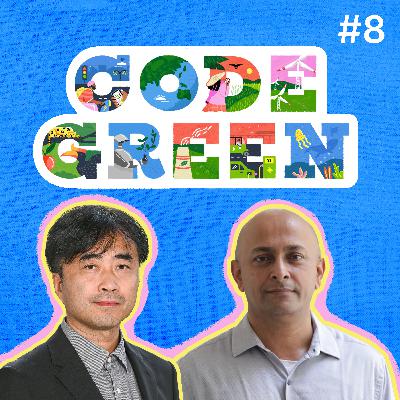03: Cutting through the Hype of AI for Climate Action
Description
Leaders at COP29 in Baku endorsed a declaration to use digital technologies and AI to address climate action, while also acknowledging the need to minimise its environmental impacts. How do we find this balance? Is it achievable at all? What new narratives and policy directions are needed? What does it mean for countries in Asia that are already grappling with the environmental impacts of rapid industrialisation?
In this episode, Cindy Lin and Sherif Elsayed-Ali critique AI's scalability and environmental costs while urging interdisciplinary approaches to ensure meaningful impact. They advocate for realistic narratives, collective restraint, and context-specific innovations, highlighting the need to distinguish hype from scientifically proven use cases to achieve sustainable advancements.
You can read the transcript for this episode here.
Speakers
Cindy Lin
Cindy is an Assistant Professor at the School of Interactive Computing at Georgia Tech. An ethnographer and information scientist, her work centers on the data practices, exchanges, and expertise of climate change and their relationship to race and environmental governance in Indonesia and the United States.
Prior to her professorship at Georgia Tech, she was assistant professor at the College of Information Sciences and Technology at the Pennsylvania State University. She was also a visiting postdoctoral fellow at Cornell Tech's Digital Life Initiative as well as a postdoctoral fellow at Cornell Atkinson Centre for Sustainability and Cornell's Department of Information Science.
Sherif Elsayed-Ali
Sherif is Executive Director of the Future of Technology Institute, where he brings unique expertise at the intersection of technology policy, entrepreneurship and human rights. He previously co-founded and served as CEO of Carbon Re, a joint spin-out of Cambridge University and UCL using machine learning to accelerate the decarbonization of foundational materials such as cement.
Prior to this, he set up and led the AI for Climate practice at Canadian scale-up Element AI and was co-founder of Amnesty Tech. He was a World Economic Forum Global Future Council co-chair and a fellow at Harvard Kennedy School, both focusing on the intersection of technology and human rights.
Show Notes
Conference of Parties 29 (COP29)
COP29 Declaration on Green Digital Action
School of Interactive Computing, Georgia Tech
Yale Program on Climate Change Communication - Climate Change in the Indonesian Mind
Post-growth Human Computer Interaction
This podcast series is accompanied by a monthly newsletter - sign up for updates here.
For more about this project, visit our website codegreen.asia
Credits
Audio Editing: Creator Studio Goa by Winfluence Media
Production Support: Shivranjana Rathore
Cover Design: Nayantara Surendranath
Attributions
Intro and Outro: Retro Sounds, Alban_Gogh
Transitions - Meditative Background Music, white_records
















